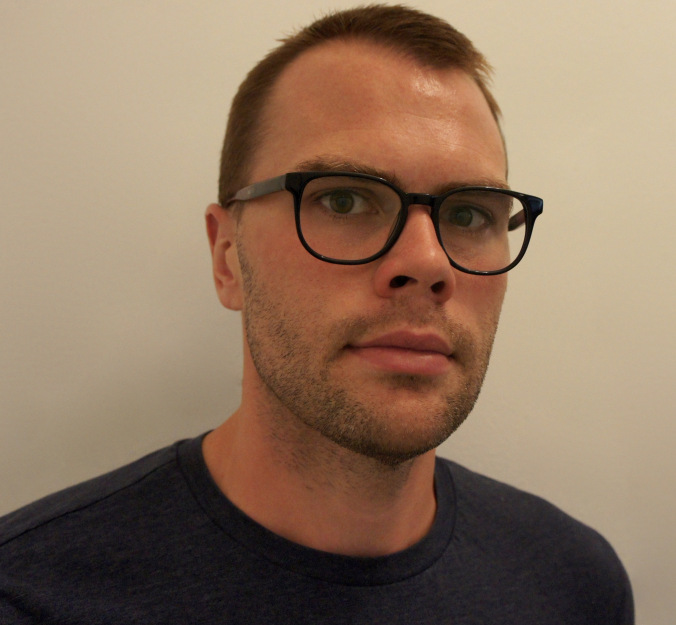
Samuel D. Hunter’s plays include The Whale (Drama Desk Award, Lucille Lortel Award for Outstanding Play, GLAAD Media Award, Drama League and Outer Critics Circle nominations for Best Play), A Bright New Boise (Obie Award, Drama Desk nomination for Best Play), The Few, A Great Wilderness, Rest, Pocatello, Lewiston, Clarkston, and most recently, The Healing and The Harvest.
He is the recipient of a 2014 MacArthur “Genius Grant” Fellowship, a 2012 Whiting Writers Award, the 2013 Otis Guernsey New Voices Award, the 2011 Sky Cooper Prize, the 2008 PONY/Lark Fellowship, and an honorary doctorate from the University of Idaho.
His plays have been produced in New York at Playwrights Horizons, Lincoln Center Theater, Rattlestick Playwrights Theater, Clubbed Thumb and Page 73, and around the country at such theaters as Seattle Rep, South Coast Rep, Victory Gardens, Williamstown Theater Festival, The Old Globe, Woolly Mammoth Theatre Company, Denver Center Theatre Company, the Dallas Theater Center, Long Wharf Theatre, and elsewhere.
His work has been developed at the O’Neill Playwrights Conference, the Ojai Playwrights Conference, Seven Devils, and PlayPenn. A published anthology of his work, including The Whale and A Bright New Boise, is available from TCG books.
He is a member of New Dramatists, an Ensemble Playwright at Victory Gardens, a member of Partial Comfort Productions, and was a 2013 Resident Playwright at Arena Stage. A native of northern Idaho, Sam lives in NYC. He holds degrees in playwriting from NYU, The Iowa Playwrights Workshop, and Juilliard.
Your plays are typically set in banal, nondescript environments and explore themes such as loneliness and human connection. What other common threads pervade your works, and what questions are you interested in exploring with your playwriting?
I think in the beginning these themes in the plays that you identify here were just things I was struggling with myself, more as a human being than a writer. As a young writer, like a lot of people, I was sort of writing beyond the scope of my abilities—taking on way too much, too many big grand themes, too many formal gymnastics. It wasn’t really until I used my writing to explore ideas I was struggling with in my real life that I finally started to find my voice.
I think the other obvious common theme in all of my plays—though it’s really not much of a theme—is that they’re pretty much all set in Idaho, where I grew up. Early on I started writing plays that were primarily set there, but it wasn’t really a conscious decision. But the sort of happy unintended consequence of that is that now, years later, I think I’ve realized that what I’m doing really isn’t about anyone play, it’s about a larger body of work made up of all these plays that connect to one another in certain ways.
Aside from that, I guess I don’t really sit down and detail what questions or themes I want to explore before I begin work on a play. I usually begin with a kernel of something—could be a character, or a single line of dialogue, or a setting, and I try to let the play naturally grow out of that idea rather than begin with a thesis statement.
When did you start writing plays?
I actually first started writing plays when I was a teenager, which is weird because I didn’t really have much of a context for playwriting growing up in a small town in Idaho. I think I didn’t even know that playwrights still existed. I did a little theater in high school and some community theater, but for a long time the most contemporary play I had encountered was Arsenic and Old Lace. But when I was sixteen or so, I fell in love with poetry, and I found a copy of some Amiri Baraka plays in the stacks at the University of Idaho library while looking for an Allen Ginsberg biography. They absolutely blew my mind—I had no idea that plays could do that kind of thing. And then the next year, I saw part one of Angels in America at the university theater, and it changed me forever. Almost immediately I wrote a play called Sixth Armageddon which was almost three hours long and was really, really terrible. But the local community theater gave me $300 to produce it in the middle of the summer with a group of very gracious local actors, and that was it.
In a weird way, I didn’t start writing plays because I thought I’d be a great playwright, it was because I wanted to be a writer but I wasn’t very good at prose. And something about the messiness of the language of playwriting really appealed to me. It wasn’t about constructing beautiful sentences, it was about pulling together a ton of common, every day, messy lines of dialogue and letting them add up to something beautiful, something that exists outside of the language itself. And I didn’t know it at the time, but the collaborative nature of theater really agrees with me—it becomes about something bigger than me, it’s about an entire community of artists coming together to tell a story.
You recently won the MacArthur “Genius” Fellowship. Has your writing process changed since you won this award?
I don’t know if it’s changed my process really, but it has definitely changed my outlook. Before I felt like I was running a race and struggling to keep up, worried that at any moment I could trip and fall and that would be that. I don’t know exactly why I felt that way, it was probably rooted in my own anxiety more than anything else. But something about the length of the fellowship—five years—gave me this outlook that seemed so much larger. As a freelance artist, sometimes it’s hard to know what’s going to happen in three months let alone a year, so to have this kind of stability for this length of time really changed how I look at my future. Maybe because for the first time I’ve realized I actually have a future! Also, it gave me the time and space to realize that I don’t have to base everything in my life around my career—and how important it is for me to have a life apart from my writing.
What kind of theatre excites you?
It’s hard for me to pin it down because some of my favorite plays are so wildly different from one another. I think if there’s one thing that consistently excites me, it’s when I feel like the playwright is invisible. So often when I’m watching a play and I get bored, it’s because I see the playwright at work. I hear the jokes as written, I see the scene construction, I understand the plot as just that, a plot. It becomes an experience about the artistic ego of the writer, not the play itself. But when I’m truly sucked into a play, I forget about the artifice of theater and am totally immersed in the world, the surprise, the catharsis. And it’s hard to pin down exactly why that happens with some plays and not with others. It’s something to do with honesty—when a playwright is truly honest about what their writing, meeting their characters on their own terms instead of muscling them into saying the thing you want them to say. When you feel a writer engaging with the material in that honest, open way, it no longer feels like a just piece of writing, it feels larger than that. And that can take any form, from the most wildly experimental play to kitchen sink realism.
You received a BFA from NYU, an MFA from the University of Iowa, and an Artists Diploma from Julliard’s playwrights’ program. How has your education influenced your writing?
When it’s all listed out like that I feel so embarrassed. How long does it take a person to learn how to write a play?!
I think it all had a deep influence on me, but I also don’t really think that there was a particular class or methodology or even teacher that had a singular, profound effect on my writing. There have been a lot of people along the way that have really shaped the way I think about plays—while I was in Iowa, Sherry Kramer taught for a semester and really showed me how plays can be organized in ways other than plot, how structure can exist within image, theme, language, metaphor, etc. And when I was at Juilliard, Marsha Norman really reminded me of the responsibility that I have a writer to my audience—at the time I think my plays had gotten a little self-consciously strange and inaccessible, and she brought me back down to earth. But at the end of the day, I don’t really think I sort of grew into myself as a writer until I was a few years out of school, which is sort of sad given that I spent nine consecutive years as a playwriting student.
What playwrights inspire you?
There are so many! I do think, though, that I’m most inspired by the playwrights I came up with. Eight or so years ago, I was in the Ars Nova Playgroup with all of these incredible writers—Amy Herzog, Branden Jacobs-Jenkins, Annie Baker, Janine Nabers, Bekah Brunstetter, Zayd Dohrn, Kris Diaz, I’m sure I’m leaving some out. It was such an amazing group, and to see how we’ve all found our paths in this very strange, difficult field has been incredibly inspiring.
I think in general I’ve always been really inspired by writers who have this almost workman-like approach to playwriting—they continued to write and produce even if they fell out of favor with critics or audiences. They just kept hammering away, and now they’ve left behind these incredible bodies of work. It’s like Bach writing music every week for the church service—he wasn’t precious about it, he just worked and worked and worked.
What advice do you have for playwrights starting out?
I actually really struggle with this, in the same way, that I struggle when I’m asked to teach playwriting. Because the fact is, oftentimes the best work is made in the least orthodox ways. But if there’s one concrete bit of advice I can give that I’m pretty certain I can stand behind: write ten full-length plays. And more than write them, really work on them. Suffer through readings and talkbacks that make you want to crawl into a hole and die.
Get used to being the one person in your writing group who is always met with awkward silence after your pages are shared. Prepare for your first major review to be very mean. Expect early collaborators of yours to leave you behind because they perceive you to be dead weight.
All of these things happened to me, and some version of them will likely happen to you. But keep going, write those ten plays, because in all likelihood those first ten plays won’t be all that great, but the eleventh might be doing something interesting. (And yes, I’m speaking from experience. In all honesty, it took me way more than ten plays.)
